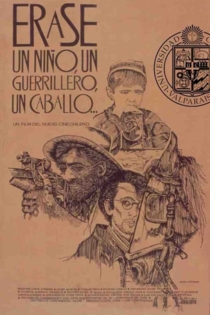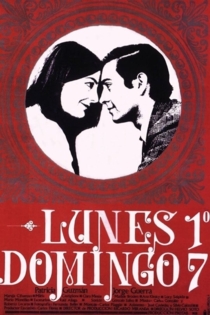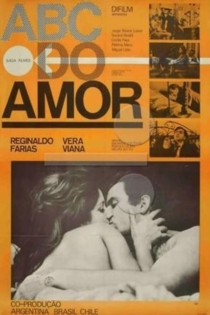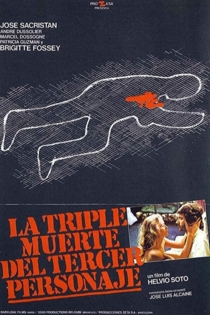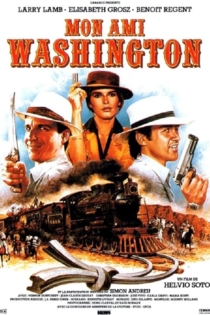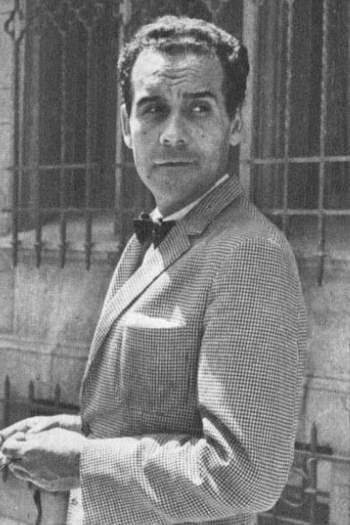
Helvio Soto
1930 - 2001He went to law school, a career he never practiced. At a very young age, and hearing the call of communications, he emigrated from Chile, achieving some positions as assistant in films shot in Argentina and working in radio in Ecuador. He wrote some books such as Semana a semana, which had regular critical success.
By the time it returns to Chile, the cinema begins to present a boom never seen before: the entry of 16 mm cameras plus the socio-political conceptions give a renovating air to the cinema made not only in this part, but also in Latin America. His first film, influenced by neo-realism and its social conception, was entitled Yo tenía un camarada (I had a comrade) and was made thanks to the support of Experimental Cinema of the Universidad de Chile in 1964. In those years, Experimental Cinema brought together young directors who, in an avant-garde and carefree attitude, began to film reality as it had never appeared on a screen before. Pedro Chaskel in editing, Héctor Ríos in photography and Gustavo Becerra in music would end up being the backbone of a group of key filmmakers of the period, and from where the first films of Raúl Ruiz, Miguel Littín, Álvaro Ramírez, Carlos Flores del Pino, Leonardo Céspedes and a wide range of documentary filmmakers would go down in history as the forgers of the New Chilean Cinema.
After his first short films, he shoots what would become his most remembered and controversial film, Caliche Sangriento. Censored by the government of Eduardo Frei Montalva due to the pressure of the military, it could see the light after an agreement that compromised the elimination of some posters that hurt the suceptibility of those years. The film was widely distributed for this reason, but once it was shown, little and nothing was said in the press.
Assumed Salvador Allende in 1970, Helvio Soto is called to take charge of administrative tasks in the National Television of Chile, where he exercised parallel to his work as director of some television series. It was not until 1971 that he was able to make his next feature film Voto + fusil, a critical look at Chile's history that was received irregularly. Later, he filmed a feature film that mixed fiction and documentary and that would never be shown in Chile since a coup d'état abruptly cut off the democratic processes developed until then.
His first "European" film is perhaps the greatest success of his career. Llueve sobre Santiago portrays the days of the coup d'état, torture, kidnappings and disappearances. It was acclaimed in Europe, Asia and North America, but banned by the military regime. Helvio Soto suffers exile in distant lands and does not return to Chile until the 1990s, where he devotes all his energies to training new generations of filmmakers.
Metamorfosis del jefe de la policía política
Helvio Soto
Patricia Guzmán, Marcelo Romo
In this film the director's recurring concerns return: the divisions in the Chilean left, and its contradictions between what the director calls the "traditional" and the "revolutionary" left. The problem is exposed through the doubts and obsessions of a strange police chief who cannot establish the limits between critical behavior and militant responsibility.
Metamorphosis of the Chief of the Political Police

Bloody Nitrate
Helvio Soto
Héctor Duvauchelle, Patricia Guzmán
Chilean soldiers try to survive in the desert after they are attacked by Peruvian troops. The 17 survivors are held together by the Captain. The Lieutenant is a civilian attorney who clashes with the Captain as he pursues the valuable rights to nitrate deposits in the area. When the fighting was over, 25,000 soldiers from Chile, Peru and Bolivia had perished while trying to secure the coveted mineral rights for foreign companies.
Bloody Nitrate
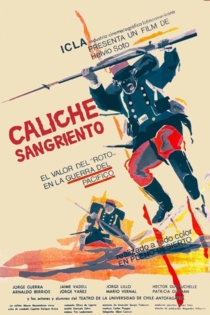
Voto + Fusil
Helvio Soto
Patricia Guzmán, Leonardo Perucci
The political evolution in Chile seeing from three different times: 1937, 1947 and 1970. A film that shows how a revolution cannot be accomplished by electoral means, and how the wealthy class will always attempt to destroy that revolution, with the help of the armed forces, as soon as their privileges are threatened.
Voto + Fusil
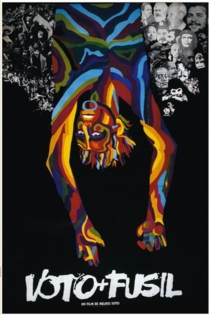
Il pleut sur Santiago
Helvio Soto
Bibi Andersson, André Dussollier
A semi-fictional account on the fatidic September 11, 1973, when the military commanded by General Pinochet took over the power from socialist president Salvador Allende, initiating a dictatorship that lasted until 1988 causing the deaths and disappearances of many people.
Rain over Santiago
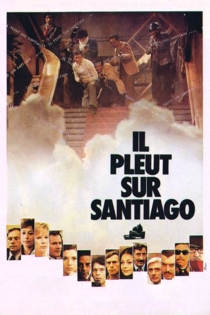
Moon Over Parador
Paul Mazursky
Richard Dreyfuss, Raúl Juliá
Little known actor, Jack Noah, is working on location in the dictatorship of Parador at the time the dictator dies. The dictator's right hand man, Roberto, makes Jack an offer he cannot refuse.. to play the dictator. Jack's acting skills fool the masses but not close friends and employees of the dictator.
Moon Over Parador
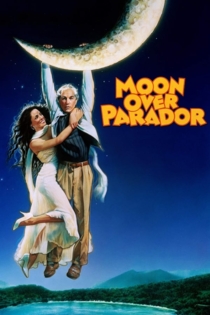
Yo tenía un camarada
Helvio Soto
Antonio Castro, Mario Lorca
A boy goes to his friend's funeral procession. When he realizes that his grave does not have flowers like the others, and that he does not have money to buy them, he goes out looking for some in the streets of Santiago.
Yo tenía un camarada

